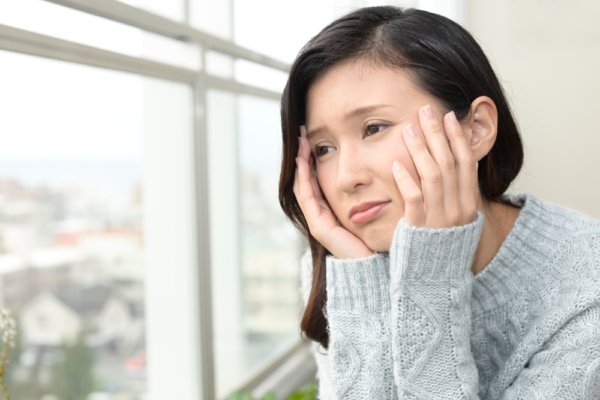People often associate osteoporosis with the elderly, but doctors have now found that some young people, even children, may also exhibit symptoms of osteoporosis.
“Osteoporosis is now present in every age group; it is no longer exclusive to the elderly,” said a doctor on duty at the Baiyao Tang Clinic in Los Angeles in a recent interview. In fact, it’s not just osteoporosis that is emerging but other “middle-aged” phenomena as well, including menopause, usually around the age of 49, which is now seen in many patients in their 30s.
As people age, bone density peaks between the ages of 20 and 40 and then decreases annually. For women, bone loss accelerates after menopause. However, the rate of decrease varies from person to person. Scientific healthcare combined with traditional Chinese medicine prevention methods can effectively help delay the age at which osteoporosis develops.
According to data from the CDC in the United States, the percentage of men aged 50 and over with osteoporosis of the femoral neck or lumbar spine is 4.2%, while for women in the same age group, it is 18.8%. Over 10 million people over the age of 50 suffer from osteoporosis, with an additional 33.6 million people in the same age group experiencing low bone mass or issues related to hip joint bone loss, increasing their risk of developing osteoporosis and potential complications in the future.
Traditional Chinese medicine practitioners at Baiyao Tang believe that early onset of osteoporosis is related to poor lifestyle habits, dietary habits, and long-term anxiety and stress. So, how can osteoporosis be scientifically prevented? The practitioners suggest focusing on four aspects:
First, maintaining emotional balance is essential. When a person is under emotional stress, the body’s pH levels fluctuate. If emotions are stable, the body’s acid-base balance remains normal, helping to prevent bone loss. Emotional imbalance can affect nutrient absorption in the gut.
One’s mood also influences hormone secretion. Hormones, chemical messengers produced by the body’s endocrine glands, are crucial for coordinating cellular functions. Hormonal deficiencies or imbalances can lead to osteoporosis, as well as symptoms like high blood sugar, cholesterol, and blood pressure.
Moreover, emotions can affect nutrient absorption in the gut, which in turn impacts bone health.
Second, maintaining a balanced diet is essential. It is advised not to be picky with food and to eat a variety of foods to maintain nutritional balance and foster healthy eating habits.
Doctors believe that if the body is kept in balance, it will guide you on what to eat. Cravings for certain foods may be the body’s way of signaling its needs. However, many people develop addictions to certain foods, such as multiple cups of milk tea daily, which can be toxic. In such cases, the body cannot signal its true needs. Additionally, fats should not be avoided, as they are essential for bone formation. Consuming saturated fatty acids in moderation each week also helps prevent osteoporosis.
Skipping breakfast long term can affect the spleen-stomach Qi, hinder metabolism, and lead to the formation of gallstones. Bile produced overnight is essential for the breakdown of proteins and fats consumed in breakfast, promoting bone growth. Skipping breakfast disrupts bile secretion, preventing essential nutrients from entering the bloodstream, creating a harmful cycle.
Third, avoiding staying up late is crucial. According to Chinese medicine theory, during the “Chou” period (1-3 am), the liver begins to store blood after entering deep sleep. Staying up late impairs the liver’s blood storage function, which is essential for nourishing the body’s organs. A deficient liver blood supply can impact organ repair, not only leading to osteoporosis but also damaging many organs in the body. Therefore, TCM approaches to osteoporosis often emphasize tonifying the liver, spleen, and kidneys, promoting blood circulation, and regulating Qi and blood.
Modern medicine also supports the risks of osteoporosis due to staying up late. A study published by the United States’ National Library of Medicine shows that women who sleep 5 hours per night have lower bone density in the whole body, hip, femur, and spine by an average of 0.012-0.018 grams per square centimeter compared to those who sleep 7 hours per night, increasing the probability of low bone mass and hip joint osteoporosis.
Fourth, engaging in appropriate exercise is crucial. Doctors at Baiyao Tang recommend simple weight-bearing exercises like walking with two dumbbells weighing a few pounds to intensify the workout. Spending around thirty minutes daily engaging in light activities like walking can serve as effective exercise.
The National Institutes of Health (NIH) website also recommends weight-bearing, resistance, and balance training to exert pressure on bones, making them stronger. Recommended exercises include brisk walking, jogging, tennis, badminton, weight lifting, resistance bands, push-ups, pull-ups, and more.
Some patients often search for treatment methods through online videos. Baiyao Tang TCM practitioners advise that post-pandemic, many have faced difficulties seeking medical help and now seek better preventive healthcare. However, online information is often inadequate and lacks specificity. Following misinformation could delay proper treatment.
From a TCM perspective, many diseases may appear similar on the surface but have different underlying causes, and patients may not be aware of the disease stage they are in. Different treatment methods are needed at different stages of an illness, with varied causes leading to different symptoms.
Therefore, TCM practitioners at Baiyao Tang recommend that if one experiences discomfort, seeking personalized medical treatment from a doctor is best.

